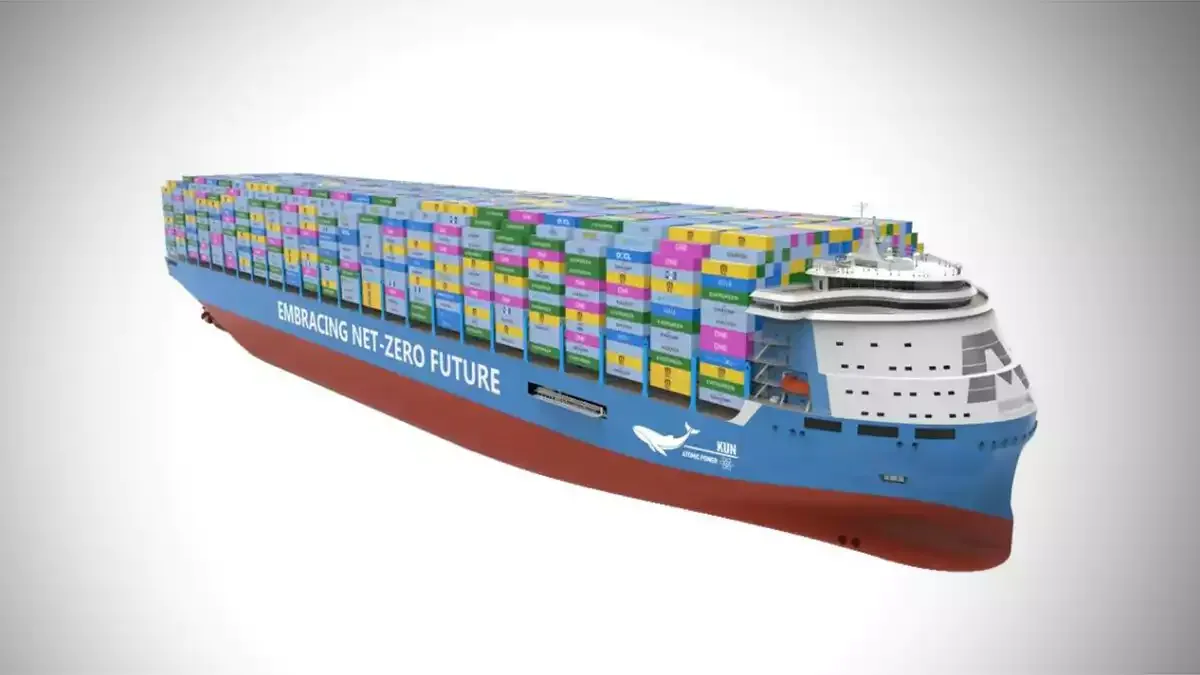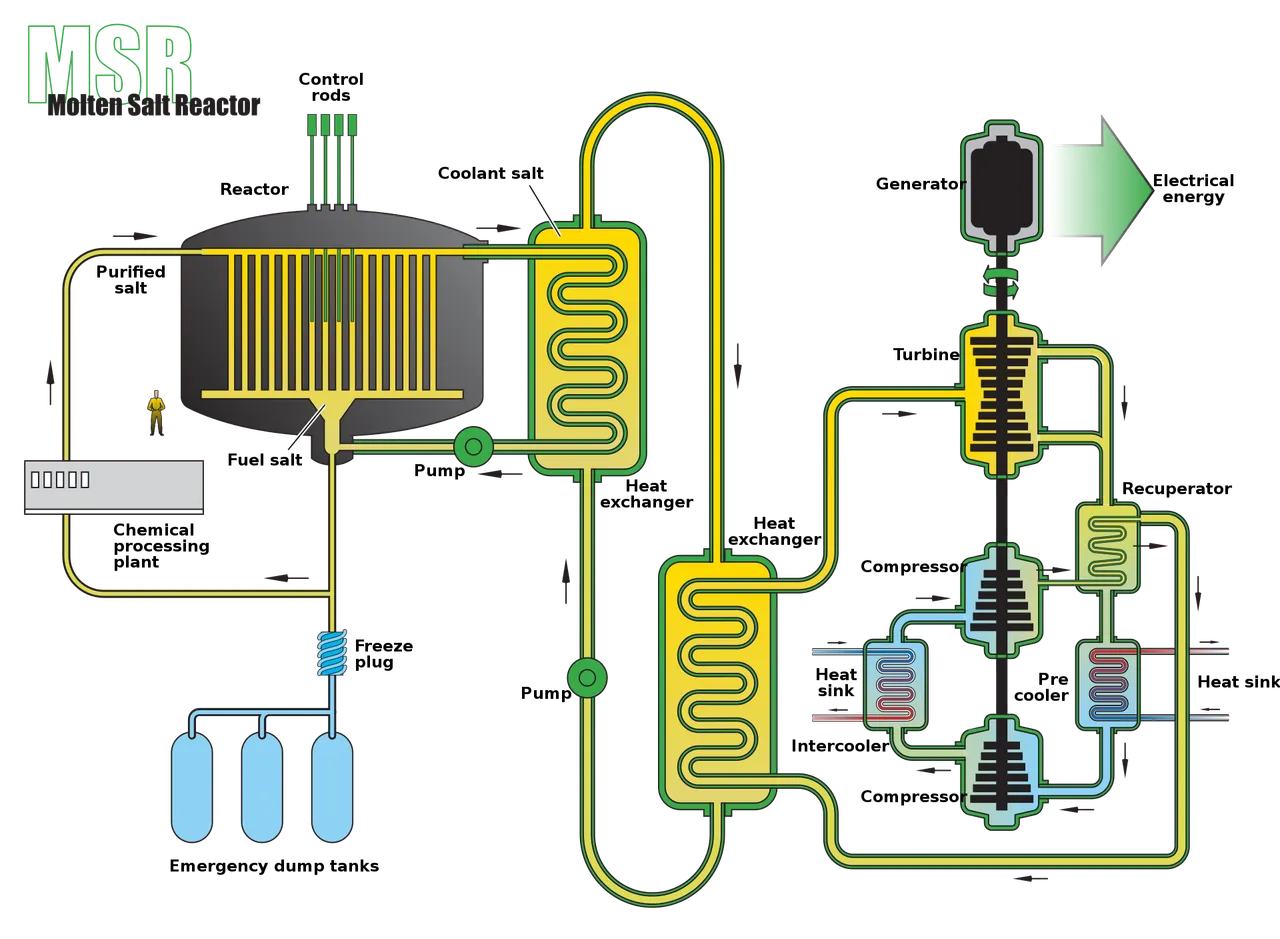Moving goods without burning oil?
24000 containers on a boat.
Today I read this news at Heise.de and decided to have a little research on this and some more facts. The China State Shipbuilding Corporation Limited announced this lately.

Bild: China State Shipbuilding Corporation Limited
Hey Hive Family
let us travel the world again
Chinese shipyard introduces large, nuclear-powered container ship
A story by the news from Heise.de translated by me and some language tools
A Chinese shipyard aims to make nuclear-powered container ships mainstream. The state-owned shipyard presented plans for a large, nuclear-powered container ship at a maritime expo in China. Named KUN-24AP, the model is designed to carry up to 24,000 twenty-foot equivalent units (TEUs) and is nearly climate-neutral, as announced by Jiangnan Shipyard, part of the China State Shipbuilding Corporation Limited. While ships with this capacity exist, none are nuclear-powered.
Nuclear-powered ships have not been successful in commercial shipping in the past, but the KUN-24AP, presented at "Marintec China" in Shanghai, is seen as having potential due to growing pressure to build low or zero-emission ships. Experts note that nuclear-powered ships have the economic advantage of not requiring frequent refueling, avoiding significant price fluctuations.
The ship is expected to use a Molten Salt Reactor, likely fueled by thorium, which is abundantly and cheaply available in China. This reactor type, operating at atmospheric pressure, virtually eliminates the risk of a meltdown and steam explosions, and allows for rapid shutdown in emergencies.
Other countries are also researching this propulsion type. However, the success of such ships depends not only on the acceptance of the new technology by shipping companies but also on ports' readiness to accommodate nuclear-powered container ships.
What is a Molten Salt Reactor
The Molten Salt Reactor (MSR) is an innovative type of nuclear reactor where the nuclear fuel is dissolved in a molten salt mixture. Unlike conventional reactors that use solid fuel rods, MSRs use liquid fuel, which can improve safety and efficiency. The molten salt acts as both the fuel and coolant, reducing the risk of a meltdown. These reactors can operate at atmospheric pressure, further enhancing safety by reducing the risk of steam explosions. MSRs are also versatile, potentially able to use various nuclear fuels including thorium, which is more abundant than uranium.
Read more about the MSR at this article at wikipedia.org

Picture by Wikipedia
Pros and Cons of a Molten Salt Reactor
Molten Salt Reactors (MSRs) have several pros and cons:
Pros:
- Safety: MSRs operate at atmospheric pressure, reducing the risk of explosions. The liquid fuel allows for a safer shutdown in emergencies.
- Efficiency: They can potentially use various fuels, including thorium, which is more abundant and produces less nuclear waste than uranium.
- Less Waste: MSRs produce less long-lived radioactive waste.
Additional Pros:
- Versatility: They can operate at various temperatures and can be adapted for different applications.
- Burn-up Efficiency: MSRs can potentially achieve higher burn-up of fuel, meaning more energy is extracted.
- Reduction in Proliferation Risk: Some designs limit the production of weapons-grade materials.
Cons:
- Corrosion: The high-temperature salt can be corrosive to materials used in the reactor.
- Development Stage: MSRs are still largely experimental and not widely implemented.
- Complexity: The handling and processing of liquid fuel are more complex than solid fuel.
Additional Cons:
- Technical Challenges: The technology requires advanced materials to withstand the harsh conditions inside the reactor.
- Waste Management: Although MSRs produce less waste, the waste they do produce can be more challenging to handle and store.
- Regulatory Hurdles: Lack of existing regulatory frameworks for this new type of reactor can delay development and implementation.
Does this solve the issue
I would love to discuss this, as I can't oversea all the details but the idea seems to be interesting

Picture by jooinn.com
Have a great day everybody
and let us travel the world again

pic by @detlev
Enjoy the #BeerSaturday
have 3 pics and a story
around beer - and go!

@Detlev loves HIVE
